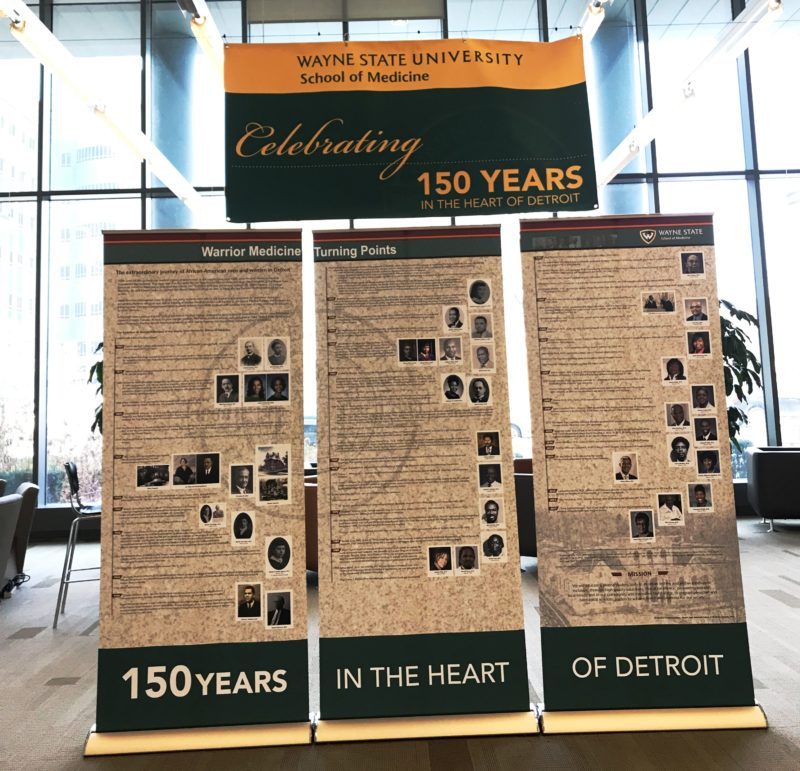
In observance of Black History Month, a new exhibit opening Feb. 1 at Wayne State University's Shiffman Medical Library at 320 E. Canfield St. in Detroit will explore and celebrate the significant contributions of African-Americans to the university's School of Medicine, which was founded in 1868 as the Detroit Medical College and graduated its first African-American student a year later.
"Warrior Medicine Turning Points: The Extraordinary Journey of African-American Men and Women in Detroit," celebrates the important role of African-Americans in the school's 150-year history. The exhibit will be displayed in the library's common areas throughout the month of February.
The WSU School of Medicine was founded in 1868 by five Civil War veteran physicians. At the same time, the first medical school in the county that was open to all people, Howard University Medical Department, opened in Washington, D.C., under the direction of Civil War veteran and Commissioner of the Freedmen's Bureau Gen. Oliver Howard. One year later, in 1869, the Detroit Medical College and Howard University graduated their first African-American physicians.
The library has hosted similar exhibits in honor of Black History Month for the last several years, each with a different theme.
Highlights of the 2018 exhibit include:
1875 -- Detroit Medical College, a forerunner of the School of Medicine, graduated its third African-American physician, John Cyrus Ferguson, M.D., the son of Joseph Ferguson, M.D., who graduated in 1869.
1888 -- Henry Fitzbutler, M.D., opened the first medical school in the United States owned and operated by African-Americans, the Louisville National Medical College. The son of an escaped slave, he completed his first year of medical training at the Detroit Medical College, the forerunner of the WSU School of Medicine.
1925 -- Robert Greenidge, M.D., Class of 1915, is ordered out of a hospital in Detroit because African-American physicians were not allowed to practice there. Dr. Greenidge went on to open three African-American hospitals in the city.
1926 -- Chester Cole Ames, M.D. (son of James Ames, M.D., founder of the Allied Medical Society and Dunbar Hospital), graduated from the Detroit College of Medicine and Surgery, another iteration of the School of Medicine of today. He was the first African-American to obtain an internship in Urology at a white hospital in Detroit, but he was never allowed on staff. He was Detroit's first African-American intern, resident and member of the Wayne University medical faculty. He also co-founded three African-American hospitals in Detroit. He was never granted hospital privileges to practice his specialty.
1943 -- Marjorie Peebles-Meyers, M.D., graduated from Wayne University College of Medicine as the first African-American female physician. She also became the first African-American female resident and chief resident at Detroit Receiving Hospital and faculty member at Wayne State University.
1957 -- Barbara Stewart Anderson, M.D., graduated from the Wayne State University School of Medicine, making her the school's second African-American female graduate. She became Hospital Associate System medical director of Detroit Medical Center University Laboratories and chief of Pathology at Detroit Receiving Hospital.
1969 -- The Black Medical Association, a student organization that continues today, was founded.
1989 -- Reach Out to Youth, an annual program to allow urban youth to explore the world of research and medicine, was founded by Carolyn King, M.D. (Class of 1993) and Don Tynes, M.D., (Class of 1995). The program continues to this day.